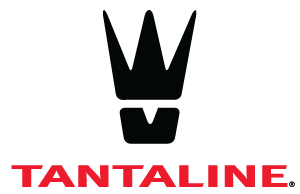Description
Diaphragm seals are designed to protect the pressure gauges from hot corrosive process media and aggressive chemicals while minimizing any negative effect on instrument accuracy and durability. Corrosion can cause loss of integrity leading to pressure gauge failures. Tantalum is recognized as the most corrosion resistant metal commercially available. Tantalum can be applied by the proprietary Tantaline® treatment to produce a robust and cost-effective option for threaded, flanged, welded and sanitary diaphragm seals. Tantaline® treatment offers superior corrosion resistance in hot acids and chlorinated compounds. This has been shown to extend equipment service life, reduce maintenance costs and downtime in Chemical, Pharmaceutical, Oil & Gas, and Semiconductor industries.
Benefits
The Chemical Vapor Deposition (CVD) process used by Tantaline® produces a thin, uniform, tantalum layer that conforms to complex geometries and adheres to the base metal part through diffusion bonding. The typical 50 micron thick tantalum layer is chemically compatible in a wide range of corrosive fluids. The metallurgically bonded robust layer maintains the integrity while withstanding the high pressures and erosion corrosion conditions found in pipelines, vessels and process equipment. Tantaline® treated diaphragm seals offer superior high temperature corrosion resistance compared to Hastelloy®*, Inconel®** and Stainless Steel thereby reducing failures. These features result in diaphragm seals that can be offered as a substitute for the ones made from exotic alloys with more economical pricing and shorter lead times.
Availability
A wide range of styles and configurations are suitable for Tantaline® treatment.
- Threaded
- Flanged
- Welded
- Sanitary
Use
| MARKET | TYPICAL PROCESSES | TYPICAL USES |
|---|---|---|
| Chemical Processing | Hot acids, wet and dry chlorine, sulfur compounds, sour gases containing H2S compounds | Piping systems, tanks, distillation columns, cracking units, incinerators and waste treatment systems |
| Oil & Gas | Acid gases (CO2, H2S, SO2) in vapor phase, ammonia (NH3), hydrogen cyanide (HCN), and amine derivatives | Pipelines, storage vessels, compression systems, emission control, exploration/extraction, hydrocarbon cracking and treating units |
| Pharmaceutical | Oxidizing agents (hydrogen peroxide, bromine, chlorine) | Fermentation tanks, sterilization units, and separators |
| Semiconductor | Strong HCl etchants, corrosive Nital (alcohol + nitric acid), byproducts of Silicon deposition process | Wafer processing units, deposition systems, cleaning and waste treatment systems |
Key Technical Information
Stainless Steel, Hastelloy®*, Inconel®**, Zirconium, and Titanium thermowells are susceptible to Stress Corrosion Cracking (SCC) and pitting under certain conditions especially hot acids. Tantaline® treated thermowells offers the following beneficial characteristics:
- Integrity is verified through manufacturing QC testing in concentrated HCl at 60⁰ C for 48 hours
- Chemically resistant to SCC and pitting in many aggressive media and environments.
- Tantalum layer remains passivated and inert to corrosion under high temperature (>200° C) acidic conditions including concentrated HCl and H2SO4.***
- Superior corrosion resistance against wet, dry chlorine atmospheres and other chlorinated environments.
**Inconel® is a trademark of Special Metals Wiggin Limited
***FJ, H. (n.d.). Properties of Tantalum for Applications in the Chemical Process Industry


